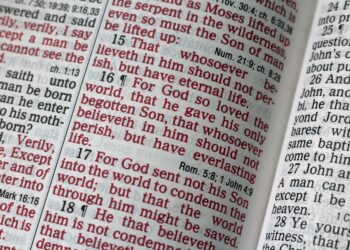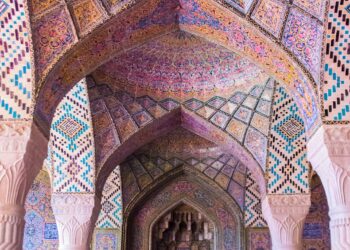Festivals and holidays hold a significant place in various faith traditions around the world. These special occasions are not just mere celebrations; they are an integral part of religious and cultural identity for billions of people. Each festival and holiday carries its unique significance, rituals, and practices that reflect the beliefs and values of a particular faith tradition.
In this blog post, we will explore the importance of festivals and holidays in different faith traditions and how they contribute to the richness and diversity of our global cultural landscape.
One of the most widely celebrated festivals in the world is Christmas, which holds immense significance for Christians around the globe. Christmas commemorates the birth of Jesus Christ, the central figure of Christianity, and is celebrated with great fervor and enthusiasm by Christians of all denominations. The holiday is marked by various customs and traditions, such as attending church services, decorating Christmas trees, exchanging gifts, and feasting on special foods.
Christmas is not just a religious holiday; it is also a cultural celebration that brings families and communities together. The spirit of giving and goodwill that permeates the holiday season reminds Christians of the importance of love, compassion, and generosity. Through the celebration of Christmas, Christians reaffirm their faith in the teachings of Jesus Christ and express gratitude for the gift of salvation.
Another important festival in the Christian calendar is Easter, which commemorates the crucifixion and resurrection of Jesus Christ. Easter is considered the holiest day in the Christian calendar and is celebrated with solemnity and joy by Christians worldwide. The holiday is marked by various religious observances, such as attending church services, engaging in prayer and reflection, and participating in communal rituals, such as the Easter Vigil and Easter Sunday Mass.
Easter is a time of renewal and rebirth for Christians, as it symbolizes the victory of life over death and hope over despair. The resurrection of Jesus Christ is seen as a central tenet of the Christian faith, offering believers the promise of eternal life and salvation. The celebration of Easter serves as a reminder of the transformative power of faith and the belief in the miraculous.
In Judaism, the festival of Passover holds great significance as it commemorates the liberation of the Israelites from slavery in ancient Egypt. Passover, also known as Pesach, is celebrated over eight days and is marked by various rituals and customs, such as the Seder meal, the retelling of the Exodus story, and the prohibition of leavened bread.
Passover is a time of remembrance and reflection for Jews, as it reminds them of the hardships endured by their ancestors and the miraculous deliverance from bondage. The holiday reinforces the core values of freedom, justice, and solidarity that are central to the Jewish faith. Through the celebration of Passover, Jews reaffirm their commitment to the covenant with God and the preservation of their cultural heritage.
Another important festival in the Jewish calendar is Hanukkah, also known as the Festival of Lights. Hanukkah commemorates the rededication of the Second Temple in Jerusalem after its desecration by the Seleucid Empire. The holiday is celebrated over eight days and is marked by the lighting of the menorah, the recitation of special prayers, and the exchange of gifts.
Hanukkah is a time of joy and celebration for Jews, as it symbolizes the triumph of light over darkness and the resilience of the Jewish people in the face of adversity. The story of Hanukkah serves as a reminder of the importance of faith, courage, and perseverance in the face of oppression. Through the celebration of Hanukkah, Jews reaffirm their commitment to their religious heritage and cultural identity.
In Islam, the festival of Eid al-Fitr holds great significance as it marks the end of Ramadan, the holy month of fasting and prayer. Eid al-Fitr, also known as the “Festival of Breaking the Fast,” is celebrated with joy and gratitude by Muslims around the world. The holiday is marked by various customs and traditions, such as attending communal prayers, giving to charity, and feasting on special foods.
Eid al-Fitr is a time of thanksgiving and reflection for Muslims, as it symbolizes the completion of a sacred obligation and the renewal of spiritual devotion. The festival is also a time of unity and solidarity among Muslims, as they come together to celebrate the blessings of Ramadan and the strength of their faith. Through the celebration of Eid al-Fitr, Muslims reaffirm their commitment to the teachings of the Prophet Muhammad and the values of compassion, mercy, and social justice.
Another important festival in the Islamic calendar is Eid al-Adha, also known as the “Festival of Sacrifice.” Eid al-Adha commemorates the willingness of the Prophet Ibrahim to sacrifice his son as an act of obedience to God. The holiday is celebrated with prayers, feasting, and the sacrifice of an animal, which is distributed to those in need.
Eid al-Adha is a time of gratitude and generosity for Muslims, as it symbolizes the importance of selflessness and sacrifice in the service of God and humanity. The festival reminds Muslims of the value of humility, compassion, and service to others. Through the celebration of Eid al-Adha, Muslims reaffirm their commitment to the principles of faith, charity, and social responsibility.
In Hinduism, the festival of Diwali holds great significance as it marks the victory of light over darkness and good over evil. Diwali, also known as the “Festival of Lights,” is celebrated with great enthusiasm and fervor by Hindus around the world. The holiday is marked by various customs and traditions, such as lighting oil lamps, decorating homes with rangoli designs, exchanging gifts, and feasting on special foods.
Diwali is a time of joy and celebration for Hindus, as it symbolizes the triumph of righteousness and the defeat of ignorance and negativity. The festival is also a time of renewal and self-reflection, as Hindus seek to purify their hearts and minds in preparation for the new year. Through the celebration of Diwali, Hindus reaffirm their faith in the power of goodness, knowledge, and spiritual enlightenment.
Another important festival in the Hindu calendar is Holi, also known as the “Festival of Colors.” Holi is celebrated with great exuberance and enthusiasm by Hindus of all ages. The holiday is marked by the throwing of colored powders and water, singing and dancing, and feasting on festive foods.
Holi is a time of joy and camaraderie for Hindus, as it symbolizes the arrival of spring and the renewal of life. The festival is also a time of forgiveness and reconciliation, as Hindus seek to mend broken relationships and heal old wounds. Through the celebration of Holi, Hindus reaffirm their belief in the power of love, harmony, and unity.
In conclusion, festivals and holidays play a crucial role in the religious and cultural life of communities around the world. These special occasions serve as a time of reflection, renewal, and celebration, bringing people together in a spirit of unity and harmony. Whether it is the solemn observance of Easter in Christianity, the joyful celebrations of Eid al-Fitr in Islam, or the colorful festivities of Diwali in Hinduism, festivals and holidays bring people closer to their faith traditions and cultural heritage. As we continue to honor and preserve these sacred observances, we also celebrate the richness and diversity of our global cultural landscape.














